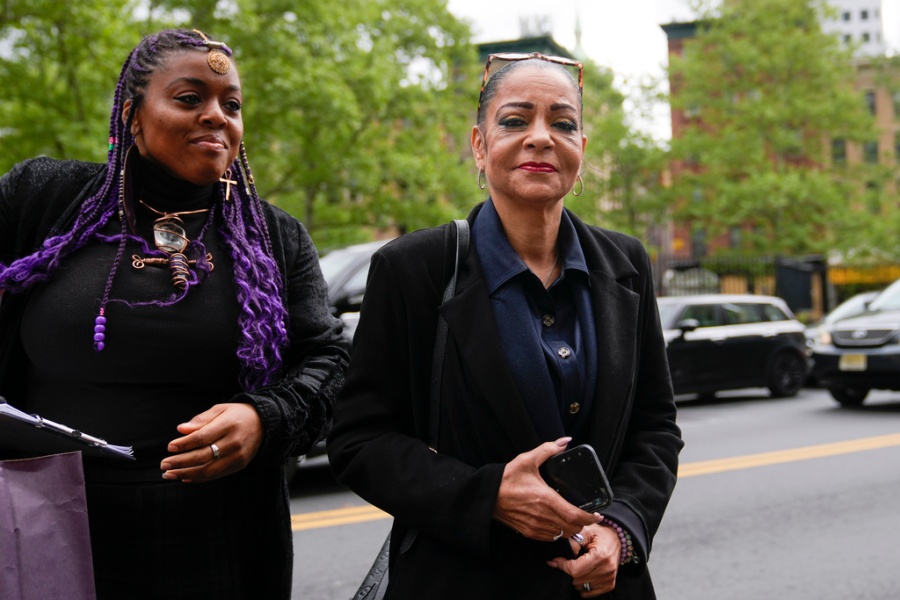
A jury concluded Thursday that British singer Ed Sheeran didn’t steal key components of Marvin Gaye’s classic 1970s tune “Let’s Get It On” when he created his hit song “Thinking Out Loud.”
As the New York jury answered the single question of whether Sheeran proved he didn’t infringe upon the copyright in the affirmative, the crooner briefly put his hands over his face in relief before standing and hugging his lawyer.
The verdict came after a two-week trial that featured a courtroom performance by Sheeran as the singer insisted, sometimes angrily, that the trial was a threat to all musicians who create their own music.
Sheeran sat with his legal team throughout the trial, defending himself against the lawsuit by the heirs of songwriter Ed Townsend, who created the 1973 soul classic with Gaye. They said “Thinking Out Loud” had so many similarities to “Let’s Get It On” that it violated the song’s copyright protection.
At the trial’s start, attorney Ben Crump told jurors on behalf of the Townsend heirs that Sheeran himself sometimes performed the two songs together. The jury saw a video of a concert in Switzerland in which Sheeran can be heard segueing on stage between “Let’s Get It On” and “Thinking Out Loud.” Crump said that was “smoking gun” proof he stole from the famous tune.
When Sheeran testified, he repeatedly picked up a guitar resting behind him on the witness stand to demonstrate how he seamlessly creates “mashups” of songs during concerts to “spice it up a bit” for his sizeable crowds.
The English pop star’s cheerful attitude on display under questioning from his attorney, Ilene Farkas, all but vanished under cross-examination.
“When you write songs, somebody comes after you,” Sheeran said during his testimony as he explained that the case was being closely watched by others in the industry.
He insisted that he stole nothing from “Let’s Get it On” when he wrote his tune.
Townsend’s heirs said in their lawsuit that “Thinking Out Loud” had “striking similarities” and “overt common elements” that made it obvious that it had copied “Let’s Get It On,” a song that has been featured in numerous films and commercials and scored hundreds of millions of streams spins and radio plays in the past half-century.
Sheeran’s song, which came out in 2014, was a hit, winning a Grammy for song of the year. His lawyers argued that the songs shared versions of a similar and unprotectable chord progression freely available to all songwriters.
Gaye was killed in 1984 at age 44, shot by his father as he tried to intervene in a fight between his parents. He had been a Motown superstar since the 1960s, although his songs released in the 1970s made him a generational musical giant.
Townsend, who also wrote the 1958 R&B doo-wop hit “For Your Love,” was a singer, songwriter, and lawyer who died in 2003. Kathryn Townsend Griffin, his daughter, testified during the trial that she thought Sheeran was “a great artist with a great future.”
She said she had hoped the lawsuit would not result in a trial, “but I have to protect my father’s legacy.”
Suggest a Correction
